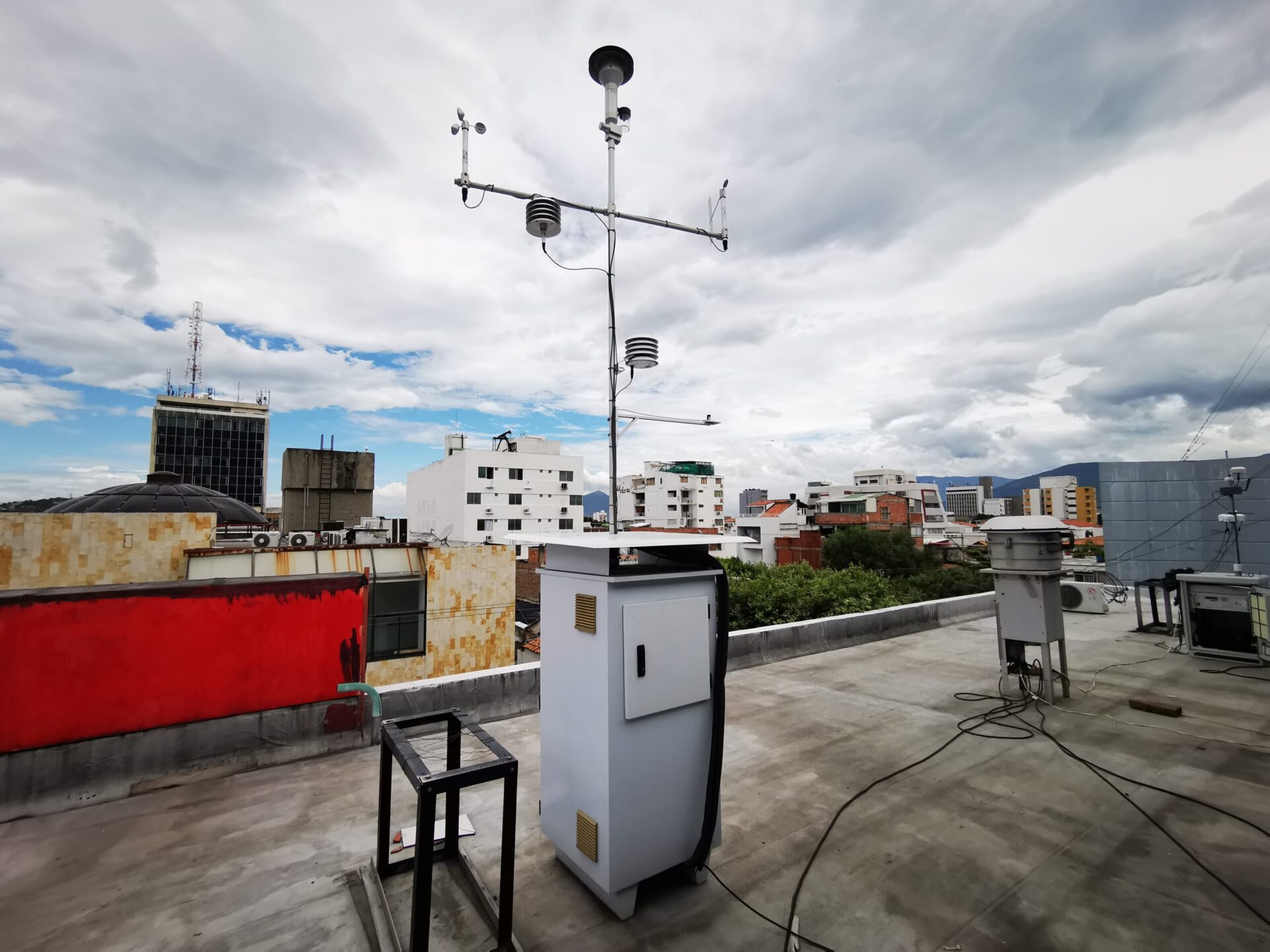Evidence-based Decisions to Improve Air Quality in Cúcuta, Colombia

Summary
This collaborative project provided evidence and scientific findings for the Air Quality Management Plan for the city of Cúcuta, Colombia. The tools and anayses included an air contaminants emission inventory, an air monitoring programme, and pollutant dispersion modelling.
The following short report can also be downloaded from the right-hand column, as can further resources mentioned below (in English and Spanish).
Objective
To provide evidence-based decisions for the Air Quality Plan of Cúcuta, Colombia (2022-2026), building and reaching consensus among institutional authorities and engaging private sector and civil society.
Background
Cúcuta is the capital of the North de Santander department in the northeast of Colombia. It is a city of about 800.000 inhabitants with a fossil fuel thermal power plant, an important coal-mining sector, manufacturing industries, and a disarticulated mass transportation system, making it difficult to get around the city. The metropolitan area is characterized by industrial activity dependent on fossil energy and poor emissions control, particularly in activities in the coking industry, and bricks and ceramics manufacture. Transportation is also based on modes that are polluting and includes an old fleet of diesel vehicles.
The health impacts of this situation are serious. The Departmental Institute of Health reported twenty-five (25) deaths per 100,000 male inhabitants in 2014, due to causes associated with respiratory diseases. A statistic from 2015, reported that respiratory diseases accounted for 55.6% of the male population morbidity and 53.2% in the female population. Thus, urgent action is required to clean the air of the city and metropolitan area. The city authorities developed the Air Quality Plan in response to this need, along with civil and private actors.
Project Summary
The project provided evidence and scientific findings for the Air Quality Plan, including the air contaminants emission inventory, a monitoring campaign to measure particles (PM10) and fine particles (PM2.5) and pollutants dispersion modelling. After completing the research and information analysis, sectorial sessions took place to disseminate the findings and identify actions. The project was carried out with the financial and operational support of the Swiss Agency for Development and Cooperation (SDC) and local institutional contributions to facilitate active participation of the directors and technical staff, providing the existing base line information, supply their facilities for the consultancy team and stakeholders meetings.

Partners
![]()
Period of SDC’s intervention: October 2020 – March 2022
Partners: Corponor, Municipality of Cúcuta, Government of Norte de Santander, Colombian Ministry of Environment.
SDC contribution: CHF 150’000
Professional support: Hill Consulting
Lessons Learnt
- The tools and technical analyses for the diagnosis of the state of air pollution in Cúcuta-Region are inputs that allow the region to have a comprehensive understanding of the problem and to foresee and implement strong actions.
- The discussion spaces allowed the reaffirmation of the roles and competencies that different actors and institutions have in the governance of air quality in Cúcuta-Region. Throughout the process, the importance of an active and coordinated participation of all the actors for the achievement of better air quality was evidenced, understanding that it is a common responsibility and not only of the environmental sector.
- The scientific products and materials generated, and the experience gained from actors and institutions working together, are a reference for other intermediate-sized cities of Colombia, as has been pointed out by the Ministry of Environment.
Key resources
- Air Quality Management Plan for the city of Cúcuta, Colombia
- Factsheets of prioritized mitigation measures
- Monitoring campaign of particles (PM10) and fine particles (PM2.5). (in Spanish)
- Air contaminants emission inventory (in Spanish)
- Pollutants dispersion modelling (in Spanish)
- Participative policy workshops (in Spanish)
- Analysis of the health benefits of reducing pollution levels Cúcuta – región (in Spanish)
- Technical note on episodes of high pollution and contingency plans (in Spanish)
- Technical note on air quality monitoring campaign (in English)
- Spotify podcast on the background for the current contingency plan process in Cúcuta-Region (in Spanish)
Related resources
- The SDC's Engagement for Clean Air for All
- Towards clean air in Chinese cities
- LEDS in Practice: Breathe clean by reducing greenhouse gas emissions from urban transport
- Urban Health Initiative – engaging the health sector to realize climate and health benefits
- Climate Change & Environment Nexus Brief: Health
(0) Comments
There is no content